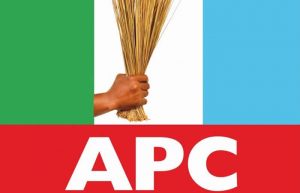Paragraph 1: Defections in the House of Representatives
The Nigerian political landscape witnessed a shift in alliances on Thursday as two members of the House of Representatives, Kabiru Usman and Abdullahi Sani, abandoned the New Nigeria Peoples Party (NNPP) to join the ruling All Progressives Congress (APC). Both Usman and Sani hail from Kano State, representing the Rano/Bunkure/Kibiya and Karaye/Rogo Federal Constituencies, respectively. Their defections, announced during plenary by Speaker Tajudeen Abbas, were attributed to "internal crisis rocking the NNPP." Further solidifying the shift in representation, Oluwole Oke, representing Oriade/Obokun Federal Constituency in Osun State, also formally declared his allegiance to the APC during the same session. The presence of APC National Chairman Abdullahi Ganduje at the plenary underscored the significance of these defections for the ruling party.
Paragraph 2: Analyzing the Political Landscape
These defections represent a significant development in Nigerian politics. The NNPP, a relatively young party, has faced challenges in maintaining its cohesion and navigating the complexities of national politics. The loss of two representatives from a key state like Kano, known for its significant voting population, deals a blow to the NNPP’s influence and its ability to project a united front. Conversely, the APC gains ground with these additions, bolstering its majority in the House of Representatives and strengthening its position as the dominant force in the Nigerian political arena. These shifts in allegiance can influence legislative agendas, the passage of bills, and the overall balance of power within the government.
Paragraph 3: Implications of the Defections
The defections carry various implications for the NNPP, the APC, and the broader political landscape. For the NNPP, these departures signal potential internal weaknesses and raise questions about the party’s ability to retain its members and build a sustainable political platform. The loss of experienced lawmakers like Usman and Sani weakens the party’s presence in the legislature and potentially diminishes its voice in national debates. Meanwhile, the APC benefits from an increased majority, which can streamline its legislative agenda and facilitate the passage of its policies with fewer obstacles. The addition of new members also expands the APC’s network of influence and its reach within different constituencies.
Paragraph 4: The Role of Internal Crisis
The cited reason for the defections – "internal crisis rocking the NNPP" – highlights the often-tumultuous nature of party politics in Nigeria. Internal disagreements, power struggles, and ideological differences can lead to factionalism and ultimately drive members to seek alternative political homes. The NNPP’s internal challenges, while not explicitly detailed in the initial report, suggest underlying issues that require attention if the party is to maintain its stability and relevance. The APC’s apparent ability to capitalize on these internal divisions showcases its political maneuvering and its capacity to attract dissatisfied members from other parties.
Paragraph 5: Ganduje’s Presence and Its Significance
The presence of APC National Chairman Abdullahi Ganduje at the plenary session sends a clear message of endorsement and consolidation. Ganduje’s attendance signifies the importance the APC places on these defections and underscores the party’s efforts to welcome new members and project an image of unity and strength. His presence likely serves as a morale booster for the defecting lawmakers and reinforces the idea that they are joining a cohesive and influential political force. This public display of solidarity reinforces the APC’s narrative of growth and stability, further contrasting with the implied instability within the NNPP.
Paragraph 6: Media Coverage and Future Projections
The reporting of these defections by Dirisu Yakubu, an experienced political journalist with The PUNCH, highlights the significance of these political realignments. Yakubu’s coverage, with his background covering political parties and the National Assembly, provides context and insights into the complexities of the Nigerian political scene. His report, while concise, raises important questions about the future trajectory of both the NNPP and the APC. Whether these defections trigger further realignments or contribute to a period of consolidation within the ruling party remains to be seen. The broader impact on the political landscape, including the balance of power in the legislature and the dynamics between political parties, will be crucial to observe in the coming months.














